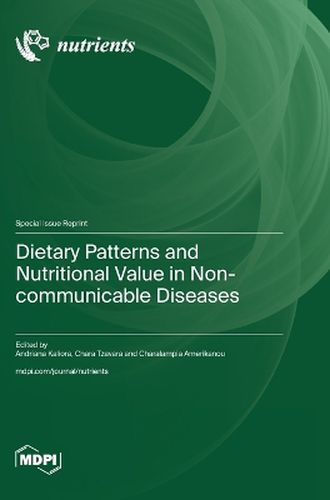Readings Newsletter
Become a Readings Member to make your shopping experience even easier.
Sign in or sign up for free!
You’re not far away from qualifying for FREE standard shipping within Australia
You’ve qualified for FREE standard shipping within Australia
The cart is loading…






It is well known that the quality of human nutrition is fundamental to human health and affects the risk of non-communicable diseases (NCDs). The global food system has been dramatically changing in recent years, which results in negative consequences concerning the nutritional quality of foods, and consequently, the risk of NCDs. Therefore, the need for diagnostic tools to use in the evaluation of nutritional value and the improvement of nutrition counseling and disease prevention is more important than ever before. Approaches to dietary patterns can help us understand the role of diets in NCDs and assess the quality of the existing dietary recommendations in clinical practice. Additionally, the identification of associations between dietary patterns and health risks will help us guide nutrition and public health policies. In this Special Issue of Nutrients, we have included manuscripts that deal with the identification of dietary patterns associated with different NCDs, as well as associations between dietary patterns and the nutrient content of their constituent foods with different disease-related factors.
$9.00 standard shipping within Australia
FREE standard shipping within Australia for orders over $100.00
Express & International shipping calculated at checkout
It is well known that the quality of human nutrition is fundamental to human health and affects the risk of non-communicable diseases (NCDs). The global food system has been dramatically changing in recent years, which results in negative consequences concerning the nutritional quality of foods, and consequently, the risk of NCDs. Therefore, the need for diagnostic tools to use in the evaluation of nutritional value and the improvement of nutrition counseling and disease prevention is more important than ever before. Approaches to dietary patterns can help us understand the role of diets in NCDs and assess the quality of the existing dietary recommendations in clinical practice. Additionally, the identification of associations between dietary patterns and health risks will help us guide nutrition and public health policies. In this Special Issue of Nutrients, we have included manuscripts that deal with the identification of dietary patterns associated with different NCDs, as well as associations between dietary patterns and the nutrient content of their constituent foods with different disease-related factors.